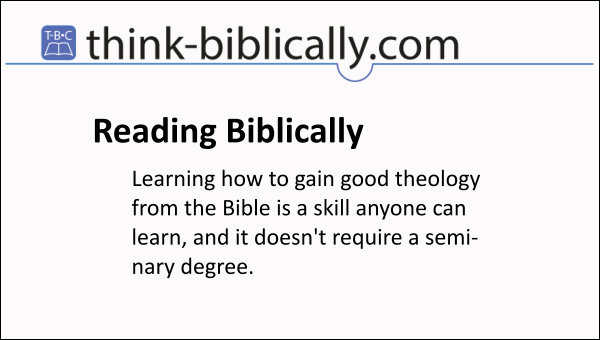By Tyson Thorne

In Christianity there are two types of theology, each supporting the other. There is Biblical Theology, which is all we learn about God through his Holy Word; then there is Systematic Theology, a vein of understanding that attempts to categorize and organize what we learn from Scripture and extend that knowledge through logical and philosophical disciplines. For example, the Bible affirms often that God is all-loving in regard to humanity. What, then, do we do with a passage like Malachi 1.3 where God proclaims "Jacob I have loved and Esau I have hated."
Since God is all-loving we know that God cannot hate Esau, so what is this passage trying to teach us? From the context we can determine that the way in which God blessed Jacob in comparison to how he brought desolation on the line of Esau's line reveals that God deals with people differently. A translation that takes this reasoning into account reads:
I have shown love to you,” says the Lord, but you say, “How have you shown love to us?”
“Esau was Jacob’s brother,” the Lord explains, “yet I chose Jacob and rejected Esau. I turned Esau’s mountains into a deserted wasteland and gave his territory to the wild jackals.”—Malachi 1.2-3 (NET)The point is that we should all seek to be like Jacob, accepted by God, rather than Esau and be rejected by him. Through this example we can see how Biblical theology can work alongside systematic theology in a way that helps us understand troublesome passages of Scripture. To put modern terminology to the comparison, D. A. Carson writes, "The proper data base for systematic theologians is the Bible". (Unity and Diversity in the New Testament: The Possibility of Systematic Theology p. 82)
Finally, we should understand that Biblical theology is largely linear, that is it studies God and spiritual topics as they were revealed progressively over time and through the Testaments. It builds revelation upon revelation. Systematic theology views Scripture as a finished work, and studies the topics of theology holistically. It organizes all passages about a topic and infers what it can from all their teachings together.
Learning how to gain good theology from the Bible is a skill anyone can learn, and it doesn't require a seminary degree to do so. It does require a few prerequisites, however. These are:
- Belief that God created all things.
- Belief the Bible is God's perfect Word.
- Belief we are dependent upon God for revealed truth.
- Belief that we are tainted by sin and it strong power of delusion but that, with careful thinking and the assistance of the indwelling Holy Spirit, one is capable of discerning good theology.
As a result of these prerequisites it is clear that developing Biblical theology is a chiefly Christian occupation. So how exactly does one "do" Biblical theology? The explanation is really quite simple, though doing a good job takes time, practice and patience. Simply stated, Biblical theology is told through linear history, progressively building our understanding of truth by way of a single story of God's redemptive plan with Jesus as its central figure. A simple statement, but one that requires careful thought.
The Bible is a historic record, an account that contains ancient markers of dates, and progresses along a linear path. History, including often the author's personal history, is part of uncovering good Biblical theology. As just stated, the Bible is a historic record, but of what history? It is the history of how God redeems his people. God's plan unfolds across time and, as such, it unfolds with progressive revelation of that plan along our timeline. The final and full revelation of God's plan is in the person of Jesus, which means that the New Testament completes the Old, and that all the snippets of Biblical theology we find in the Old Testament ultimately relate to the Messiah. This is the method we used to discern the primary theological themes of the Book of Jonah.